#Appetite changes
Photo
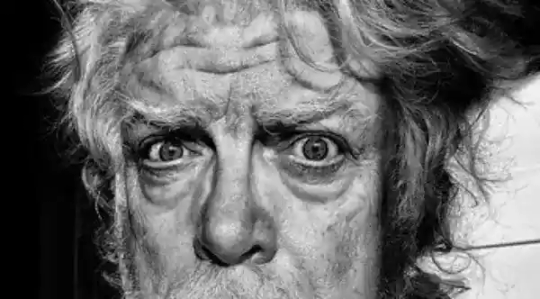
New Post has been published on https://www.knewtoday.net/early-signs-and-symptoms-of-psychiatric-problems-recognizing-potential-indicators/
Early Signs and Symptoms of Psychiatric Problems: Recognizing Potential Indicators

Psychiatric problems can encompass a wide range of conditions, each with its own unique set of signs and symptoms. It’s important to note that these symptoms can vary greatly depending on the specific disorder and individual factors.
Psychiatric problems, also known as mental health disorders, encompass a broad range of conditions that can significantly impact an individual’s thoughts, emotions, behaviors, and overall well-being. These conditions can affect people of all ages and backgrounds and may manifest in various ways. Recognizing the early signs and symptoms of psychiatric problems is crucial for early intervention and effective treatment.
It’s important to note that psychiatric problems are complex and multifaceted, and each disorder has its own distinct set of symptoms. Additionally, individuals may experience symptoms differently based on their unique circumstances. Nonetheless, there are some common indicators that can serve as early warning signs.
By understanding and being able to identify these early signs and symptoms, individuals, their loved ones, and healthcare professionals can intervene promptly, potentially preventing the condition from worsening or alleviating its impact on the person’s life.
In this article, we will explore some of the earliest signs and symptoms of psychiatric problems. However, it’s important to remember that self-diagnosis is not recommended, and only a qualified mental health professional can provide a definitive diagnosis. The information presented here is intended to raise awareness and promote early detection, encouraging individuals to seek appropriate professional help when needed.
Remember, mental health matters, and early recognition and intervention can make a significant difference in the lives of those affected by psychiatric problems.
Here are some common early signs and symptoms that may indicate the presence of a psychiatric problem:
Changes in mood: Persistent feelings of sadness, irritability, anger, or anxiety that seem out of proportion to the situation.
Withdrawal and social isolation: A noticeable decline in social activities, avoiding friends and family, and a preference for being alone.
Sleep disturbances: Significant changes in sleep patterns, such as insomnia or excessive sleepiness.
Changes in appetite: A noticeable decrease or increase in appetite that results in significant weight loss or gain.
Lack of concentration: Difficulty focusing, making decisions, or completing tasks that were previously manageable.
Decreased energy and motivation: Feeling consistently fatigued or lacking the drive to engage in activities once enjoyed.
Increased agitation or restlessness: Feeling constantly on edge, restless, or experiencing a sense of unease.
Unexplained physical complaints: Frequent headaches, stomachaches, or other physical symptoms without a clear medical cause.
Changes in self-care: Neglecting personal hygiene, appearance, or engaging in self-destructive behaviors.
Cognitive difficulties: Problems with memory, attention, or executive functioning (planning, organizing, problem-solving).
Changes in Mood
Changes in mood can occur for various reasons and are influenced by a combination of internal and external factors. While it’s normal to experience fluctuations in mood from time to time, persistent or extreme mood swings may indicate underlying conditions that require attention. Here are some potential causes and factors that can contribute to changes in mood:
Emotional triggers: Certain events or situations, such as receiving good news or facing a stressful event, can elicit emotional responses and cause shifts in mood.
Hormonal changes: Hormonal fluctuations, particularly in women during menstrual cycles, pregnancy, or menopause, can lead to mood swings. Hormones play a significant role in regulating mood and emotions.
Sleep disturbances: Lack of quality sleep or disruptions in sleep patterns can negatively impact mood stability. Sleep deprivation can make you more susceptible to irritability, sadness, and mood swings.
Stress and anxiety: High levels of stress and anxiety can affect mood and lead to mood swings. Coping with excessive stressors, such as work pressures or relationship difficulties, can strain emotional well-being.
Mental health conditions: Conditions like depression, bipolar disorder, and borderline personality disorder can cause significant mood swings. These conditions often require professional diagnosis and treatment.
Medications and substances: Certain medications, such as antidepressants, steroids, or hormonal treatments, may impact mood stability. Substance abuse or withdrawal can also contribute to changes in mood.
Seasonal changes: Some individuals may experience seasonal affective disorder (SAD), a type of depression that occurs during specific seasons, usually winter. Changes in light exposure and circadian rhythm disruptions can influence mood.
Lifestyle factors: Poor nutrition, lack of physical activity, and excessive alcohol or drug use can affect mood stability. Engaging in healthy habits, like regular exercise and a balanced diet, can positively impact mood.
If you’re concerned about your mood swings or notice persistent changes in your emotional well-being, it’s recommended to consult a healthcare professional or mental health provider. They can help assess your situation, provide an accurate diagnosis if necessary, and guide you toward appropriate treatment options.
Withdrawal and Social Isolation
Withdrawal and social isolation are significant aspects of mental health and can have a profound impact on an individual’s well-being. While I cannot generate images, I can provide you with information on withdrawal and social isolation.
Withdrawal refers to a behavior where individuals consciously or unconsciously distance themselves from social interactions and isolate themselves from others. It can manifest in various ways, such as avoiding social gatherings, spending excessive time alone, or withdrawing emotionally from relationships. It is often associated with mental health conditions like depression, anxiety disorders, social anxiety, and certain personality disorders.
Social isolation, on the other hand, refers to a state where individuals have limited or no social contact with others. It can result from external circumstances, such as living alone or being geographically isolated, as well as internal factors like a lack of social skills, low self-esteem, or a fear of judgment and rejection. Prolonged social isolation can significantly impact mental health and contribute to feelings of loneliness, depression, and increased vulnerability to other mental health issues.
Both withdrawal and social isolation can be early signs of underlying mental health problems. They can be influenced by a variety of factors, including personal experiences, trauma, societal pressures, and individual temperament. It is important to recognize and address these behaviors, as they can have detrimental effects on individuals’ mental, emotional, and physical well-being.
If you or someone you know is experiencing withdrawal and social isolation, it is advisable to seek professional help from a mental health provider. They can provide an accurate diagnosis, determine the underlying causes, and recommend appropriate interventions or treatments to address these issues and promote social connection and well-being.
Sleep Disturbances
Sleep disturbances are disruptions in the normal patterns of sleep, which can include difficulties falling asleep, staying asleep, or experiencing poor sleep quality. They are common symptoms associated with various psychiatric problems and can also contribute to the development or exacerbation of mental health issues. While I cannot generate images, I can provide information on sleep disturbances.
Sleep disturbances can manifest in different ways, including:
Insomnia: Difficulty falling asleep, staying asleep, or waking up too early in the morning. Insomnia can be associated with psychiatric disorders such as anxiety, depression, and post-traumatic stress disorder (PTSD).
Hypersomnia: Excessive daytime sleepiness, often leading to long or unrefreshing naps. Conditions such as major depressive disorder and certain sleep disorders, like narcolepsy, can cause hypersomnia.
Nightmares: Disturbing dreams that awaken individuals during the night, causing anxiety or fear. Nightmares can be linked to conditions like post-traumatic stress disorder (PTSD), anxiety disorders, and mood disorders.
Sleep apnea: A sleep disorder characterized by pauses in breathing or shallow breathing during sleep, leading to disrupted sleep and daytime fatigue. Sleep apnea can affect mental health by contributing to mood disorders and cognitive impairment.
Restless legs syndrome (RLS): An uncomfortable sensation in the legs, often accompanied by an irresistible urge to move them, which can disrupt sleep. RLS is associated with conditions such as depression and anxiety disorders.
Sleep disturbances and psychiatric problems often have a bidirectional relationship, meaning they can influence and exacerbate each other. Disrupted sleep can contribute to the onset or worsening of mental health conditions, and psychiatric problems can disrupt normal sleep patterns. Addressing sleep disturbances is essential for promoting overall mental well-being.
Changes in Appetite
Changes in appetite refer to significant alterations in a person’s desire to eat or the amount of food they consume. These changes can be indicators of underlying physical or mental health issues. While I cannot generate images, I can provide information on changes in appetite.
There are two primary types of appetite changes:
Increased appetite (polyphagia): This involves an abnormally heightened desire to eat and a tendency to consume larger quantities of food. It can be associated with conditions such as depression, certain types of anxiety disorders, bipolar disorder, and some medical conditions.
Decreased appetite (hypophagia or anorexia): This refers to a reduced desire to eat or a lack of interest in food. It can result in decreased food intake and weight loss. Decreased appetite can be a symptom of various mental health disorders, including major depressive disorder, generalized anxiety disorder, eating disorders (such as anorexia nervosa), and substance abuse.
Changes in appetite can significantly impact an individual’s nutritional status and overall well-being. It is important to identify the underlying cause of appetite changes and address them appropriately. A healthcare professional, such as a doctor or mental health specialist, can conduct a thorough evaluation to determine the root cause and develop a suitable treatment plan.
In some cases, changes in appetite may require a multidisciplinary approach involving mental health interventions, nutritional counseling, and medical management. Additionally, supportive measures like maintaining a balanced diet, regular exercise, and establishing healthy eating habits can also be beneficial.
Lack of Concentration
Lack of concentration, also known as difficulty focusing or sustaining attention, is a common symptom that can occur in various mental health conditions and situations. While I cannot generate images, I can provide information on the topic.
Lack of concentration refers to an inability to focus on a task or maintain attention for an extended period. It can manifest in several ways:
Distractibility: Being easily distracted by external stimuli or internal thoughts, making it challenging to stay focused on the task at hand.
Mind wandering: Frequently experiencing a wandering mind, where thoughts drift away from the present moment, causing difficulty in maintaining concentration.
Difficulty starting or completing tasks: Struggling to initiate tasks or experiencing challenges in following through and completing them due to a lack of sustained attention.
Lack of concentration can be associated with various mental health conditions, including:
Attention-deficit/hyperactivity disorder (ADHD): Individuals with ADHD often experience difficulties with concentration and attention, leading to problems in academic, work, or daily life functioning.
Anxiety disorders: Excessive worry, racing thoughts, and feelings of restlessness in anxiety disorders can impair concentration and make it challenging to focus on specific tasks.
Depression: Depressive symptoms such as fatigue, diminished motivation, and reduced cognitive functioning can lead to difficulties with concentration and attention.
Stress and overload: High levels of stress, overwhelming demands, or multitasking can impact concentration and make it harder to maintain focus.
Sleep disturbances: Lack of quality sleep or sleep disorders can significantly affect cognitive functioning, including concentration and attention.
If you or someone you know is experiencing persistent difficulty with concentration that interferes with daily functioning and quality of life, it may be helpful to seek professional evaluation. A mental health professional can conduct an assessment, identify any underlying conditions or contributing factors, and recommend appropriate interventions. Treatment options may include therapy, medication, lifestyle modifications, and developing strategies to improve focus and attention.
It’s important to address the underlying causes of lack of concentration, as improved focus and attention can enhance productivity, performance, and overall well-being.
Decreased Energy and Motivation
Decreased energy and motivation are common symptoms that can occur in various mental health conditions and situations. While I cannot generate images, I can provide information on the topic.
Decreased energy refers to a significant reduction in physical or mental vitality and can manifest as feelings of fatigue, lethargy, or a general lack of energy. Motivation refers to the drive, enthusiasm, or willingness to engage in activities or pursue goals. When energy and motivation are decreased, individuals may find it challenging to initiate tasks, experience a lack of interest or pleasure in activities, and struggle to maintain productivity.
Several mental health conditions can be associated with decreased energy and motivation, including:
Depression: Reduced energy levels and loss of interest or pleasure in previously enjoyed activities are hallmark symptoms of depression.
Anxiety disorders: Chronic worry and anxiety can be mentally and physically draining, leading to decreased energy and motivation.
Bipolar disorder: During depressive episodes of bipolar disorder, individuals may experience low energy levels and a decrease in motivation.
Chronic stress: Prolonged exposure to stress can deplete energy reserves, leading to a lack of motivation and fatigue.
Certain medical conditions and medications: Some medical conditions, such as thyroid disorders or chronic pain, can contribute to decreased energy and motivation. Additionally, certain medications may have side effects that impact energy levels.
It’s important to differentiate between a temporary decrease in energy and motivation due to situational factors (such as stress or a busy period) and persistent or significant changes that affect daily functioning and quality of life. If you or someone you know is experiencing prolonged or severe decreases in energy and motivation, it may be helpful to seek professional evaluation. A healthcare provider or mental health professional can conduct an assessment, identify underlying causes or contributing factors, and recommend appropriate interventions. Treatment options may include therapy, medication, lifestyle modifications, and developing strategies to increase energy and motivation.
Addressing decreased energy and motivation can significantly improve overall well-being and quality of life. It is important to seek support and guidance from professionals to explore the underlying causes and develop a tailored treatment plan.
Increased Agitation or Restlessness
Increased agitation or restlessness refers to a state of heightened physical or mental activity, often accompanied by a sense of inner turmoil or discomfort. While I cannot generate images, I can provide information on this topic.
Agitation and restlessness can manifest in various ways, including:
Physical restlessness: Difficulty sitting still, pacing, fidgeting, or constantly moving body parts (e.g., tapping fingers or bouncing legs).
Emotional agitation: Feeling on edge, irritable, or easily provoked. There may be a sense of inner tension or unease.
Racing thoughts: Experiencing a rapid stream of thoughts, making it challenging to focus or relax.
Impatience: Having a decreased tolerance for delays or frustrations, often resulting in heightened irritability.
Agitation and restlessness can be associated with several mental health conditions, including:
Anxiety disorders: Conditions such as generalized anxiety disorder, panic disorder, or post-traumatic stress disorder (PTSD) can lead to increased agitation and restlessness due to heightened levels of anxiety.
Bipolar disorder: During periods of mania or hypomania, individuals with bipolar disorder may experience increased energy, agitation, and restlessness.
Attention-deficit/hyperactivity disorder (ADHD): Restlessness and difficulty staying still are core symptoms of ADHD, particularly in children and adolescents.
Substance withdrawal: When an individual stops using certain substances, such as alcohol, benzodiazepines, or stimulants, they may experience agitation and restlessness as part of the withdrawal process.
It’s important to note that increased agitation and restlessness can also be influenced by situational factors such as stress, sleep deprivation, or certain medications. If you or someone you know is experiencing persistent or severe agitation or restlessness that interferes with daily functioning and well-being, it may be helpful to seek professional evaluation. A mental health professional can assess the symptoms, determine any underlying conditions or contributing factors, and recommend appropriate interventions. Treatment options may include therapy, medication, stress reduction techniques, lifestyle adjustments, and coping strategies to manage agitation and restlessness effectively.
Addressing increased agitation and restlessness is crucial for promoting overall mental well-being and reducing distress. Seeking professional help can provide guidance, support, and appropriate interventions to manage these symptoms and improve quality of life.
Unexplained Physical Complaints
Unexplained physical complaints refer to physical symptoms or sensations that cannot be adequately explained by a medical condition or a specific physical cause. These symptoms may lack a clear organic basis and may not align with the expected physiological findings. While I cannot generate images, I can provide information on this topic.
Unexplained physical complaints can manifest in various ways, including:
Chronic pain: Persistent or recurrent pain in different parts of the body, such as headaches, backaches, or joint pain, without a clear medical explanation.
Gastrointestinal issues: Frequent or chronic digestive complaints, such as abdominal pain, bloating, nausea, or changes in bowel habits, with no identifiable organic cause.
Fatigue: Persistent feelings of tiredness, low energy, or weakness that cannot be attributed to a medical condition or physical exertion.
Non-specific neurological symptoms: Experiencing unexplained sensations like tingling, numbness, dizziness, or balance problems without apparent neurological abnormalities.
Sleep disturbances: Persistent difficulties with sleep, such as insomnia or non-restorative sleep, that do not result from an identifiable sleep disorder or external factors.
These unexplained physical complaints often fall under the category of somatic symptom disorder (SSD) or related conditions. Somatic symptom disorder involves experiencing distressing physical symptoms and excessive concern or preoccupation with these symptoms, which may significantly impact daily functioning and quality of life.
It is important to approach unexplained physical complaints with a comprehensive assessment that includes both physical and psychological evaluations. Sometimes, these symptoms can be influenced by underlying mental health conditions, such as anxiety disorders, depression, or trauma-related disorders.
It’s essential to validate and address these symptoms with appropriate support and care, as understanding the mind-body connection can contribute to improved well-being and symptom management.
Changes in Self-care
Changes in self-care refer to noticeable alterations in a person’s ability or willingness to engage in activities that promote physical and emotional well-being and personal hygiene. While I cannot generate images, I can provide information on this topic.
Self-care activities encompass a wide range of behaviors, including maintaining personal hygiene, eating a balanced diet, getting regular exercise, practicing relaxation techniques, seeking social support, and attending to emotional needs. Changes in self-care can manifest in several ways:
Neglecting personal hygiene: Individuals may show a decline in grooming habits, such as not showering regularly, neglecting dental care, or wearing unwashed clothes.
Poor nutrition and appetite changes: There may be a noticeable shift in eating patterns, including reduced appetite, skipping meals, or relying on unhealthy food choices.
Lack of exercise or physical activity: A decrease in engagement in regular physical activity or a significant decline in overall mobility and energy levels.
Neglecting emotional well-being: Individuals may withdraw from activities they once enjoyed, isolate themselves socially, or disregard activities that promote emotional well-being, such as hobbies or self-reflection.
Changes in self-care can be indicative of various underlying factors, including:
Depression: Individuals experiencing depression may struggle with motivation, energy levels, and finding pleasure in self-care activities.
Anxiety disorders: Heightened anxiety can lead to difficulties in focusing on self-care, as individuals may be preoccupied with worry and physical symptoms.
Substance abuse: The misuse of substances can interfere with self-care routines and priorities, leading to neglect of personal hygiene and overall well-being.
Chronic illness or pain: Managing chronic health conditions or experiencing persistent pain can make self-care activities more challenging to accomplish.
Overwhelming stress: High levels of stress can contribute to a neglect of self-care as individuals may prioritize other responsibilities or struggle with time management.
Addressing changes in self-care is crucial for maintaining physical and emotional health. By prioritizing self-care activities, individuals can enhance their overall well-being, resilience, and quality of life.
Cognitive Difficulties
Cognitive difficulties refer to challenges or changes in various mental processes involved in thinking, understanding, remembering, and problem-solving. While I cannot generate images, I can provide information on this topic.
Cognitive difficulties can manifest in different ways, including:
Memory problems: Difficulty in remembering recent events, important information, or tasks that need to be accomplished.
Concentration and attention issues: Finding it challenging to stay focused on tasks, easily getting distracted, or experiencing a general lack of concentration.
Slowed thinking or processing speed: A noticeable delay in processing information, generating thoughts, or responding to stimuli.
Language difficulties: Struggling to find the right words, express oneself clearly, or understand written or spoken language.
Executive function deficits: Difficulties in planning, organizing, problem-solving, multitasking, or initiating and completing tasks.
Cognitive difficulties can be associated with various factors, including:
Aging: Normal age-related cognitive changes can lead to mild memory difficulties and a slight decline in cognitive functioning.
Mental health conditions: Conditions such as depression, anxiety disorders, attention-deficit/hyperactivity disorder (ADHD), or post-traumatic stress disorder (PTSD) can impact cognitive abilities.
Neurological disorders: Conditions like Alzheimer’s disease, Parkinson’s disease, multiple sclerosis (MS), or traumatic brain injury (TBI) can cause cognitive impairments.
Medication side effects: Certain medications, particularly those affecting the central nervous system, may have cognitive side effects.
Chronic stress: Prolonged exposure to high levels of stress can impact cognitive performance, including memory and concentration.
Addressing cognitive difficulties early on is important for managing symptoms, improving cognitive functioning, and enhancing overall well-being. Professionals can provide appropriate support, guidance, and interventions to help individuals cope with and adapt to any cognitive changes they may be experiencing.
#Appetite changes#Behavioral changes#Cognitive impairment#Emotional changes#Mental health#Mental health awareness#Mood disorders#Psychiatric disorders#Self-care neglect#Sleep disturbances#Social withdrawal
0 notes
Text
Job Stress and Your Mental Health
Today let’s talk about how your stress at work is affecting your mental health. While a certain degree of stress is a natural part of any job, excessive job-related stress can have a serious impact on a person’s mental health. Job stress can lead to a range of negative outcomes, including burnout, anxiety, depression, and other mental health issues. Let us explore the effects of job stress on…

View On WordPress
#anxiety#appetite changes#burnout#depression#fatigue#Health#irritability#meditation#Mental Health#sleep problelms#Stress#withdrawal#yoga
0 notes
Text
10 Signs You Might Be Suffering from Depression and What to Do About It
Depression is a prevalent mental health disorder that affects millions of individuals worldwide. It can cause a variety of symptoms that make daily activities challenging. Nevertheless, recognizing the signs and symptoms of depression might be the first step towards getting the necessary assistance. Here are some indications that you may be experiencing depression:
Persistent feelings of…
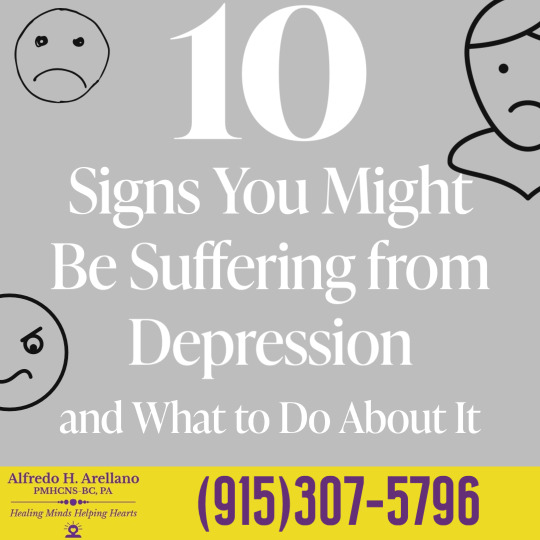
View On WordPress
#AAPsychiatry#Alcoholism#Alfredo Arellano#Anger#Appetite changes#Body aches#Concentration problems#Decision-making difficulties#Depression#Diagnosis#Eduardo Mariscal#El Paso Anxiety Help#El Paso Mental Health#El Paso Texas#Fatigue#Headache#Hopelessness#Irritability#Lifestyle change#Loss of interest#Management#Medication#mental health#Physical symptoms#Psychiatric help#Psychiatry El Paso#Psychotherapy#Reclaim life#Sadness#School problems
0 notes
Text
i've had like 8 periods now and have noticed that before a period i get crazy hungry. i've been eating like mad today. ergo my period is probably on the way
0 notes
Text
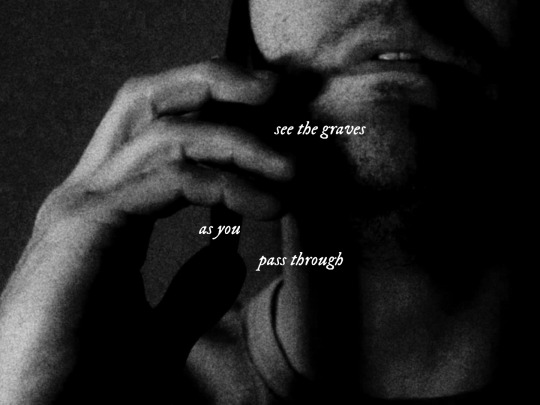
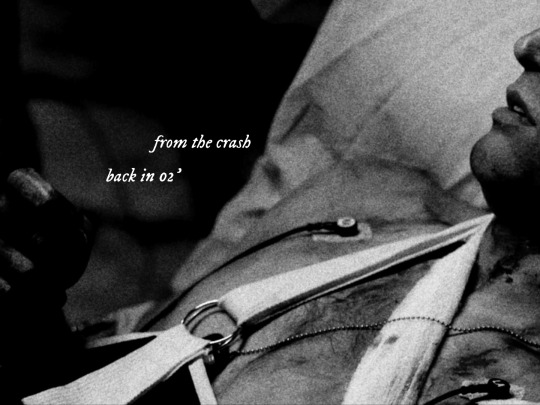
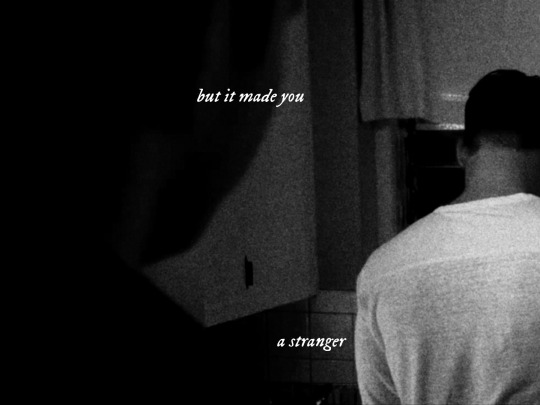
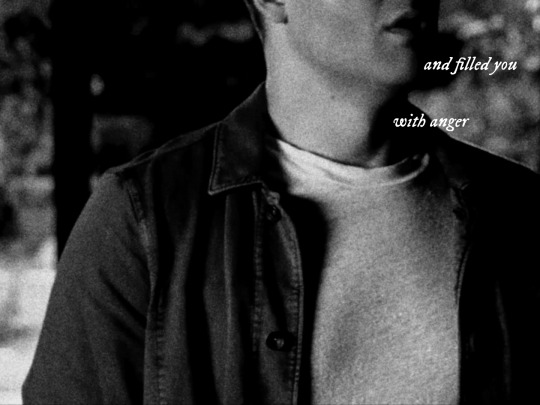
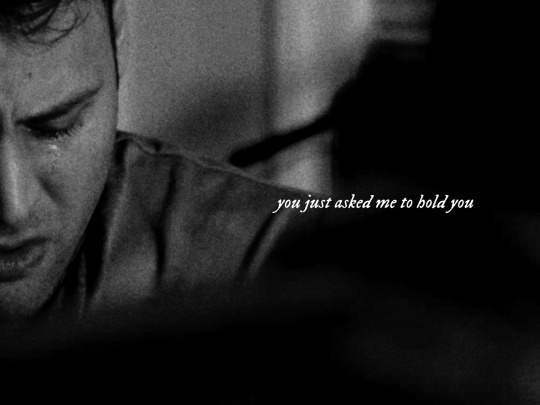
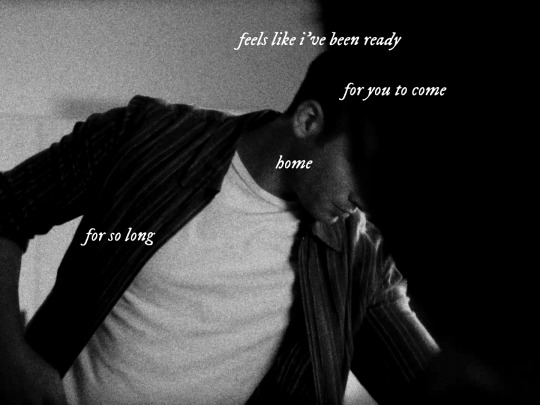
it's yours if you want it.
#yes this is orange juice by noah kahan. yes i completely took it out of context. yes i changed up the order and took some lyrics out#needed it to fit the narrative OKAY#here you have it <3 bon appetit#buddie#eddie diaz#evan buckley#buddieedit#eddiediazedit#911#911 abc#911edit#lyrics#m*edits
303 notes
·
View notes
Text

I thought of this with a carnival in mind but feel free to interpret this any way you want. Looking at you, Radioapple shippers
#Hazbin Hotel#Lucifer Morningstar#Lucifer Magne#Alastor#Fanart#I love their dynamic so much#There are still things I'm not completely happy with but this took embarrassingly long and if I look at this any longer I'll go insane#So yeah. I thought the idea was funny#I hope nobody has thought of this yet. And if somebody has don't tell me bfjsjsjw#Yeah I'm still frothing at the mouth#The songs and characters have been bouncing around in my head ever since the show came out#Oh btw I changed their outfits just a teeny tiny bit#Namely the buttons and Lucifer's collar#Can you tell I had no idea what to do with the background#And that I have zero idea how to draw hands#Yeah those were not fun to draw. So yeah. Started making it had a breakdown bon appetite#My posts#My art#Swearing#Okay yeah click on the pic for not fucked up quality. Thanks Tumblr
45 notes
·
View notes
Text
procrastination is starting to have its consequences finally
#on my friends living room floor they love together but one of them has been london for weeks or maybe months#to be with her love. im on a foam mattress from one of their beds next to a glass bottle of water opened by one of them#in a mug given to me by another. the weather felt like my childhood today and it also felt like 2 years ago.#(put space in the heavens Einstein's idea and hes your friend too so nothing to fear) around the table they drank and laughed and i thought#i hope you keep growing so full with the love you receive . i hope your appetite becomes insatiable from how used to it you are#and i know youre all leaving soon but i hope one day you miss this and that youll be happy you miss it#its worth missing i think#i thought he didnt care but he said after exams hes going walk around this area over and over#(this is near where he lived and where we visited almost daily for a year)#(hed come across the bridge on a lake)#we went where she used to live and at the entrance a fox sat calmly. it just yawned and stared.#it felt important somehow. i think maybe their impressions of me will never be close to how i feel inside but i think#i love them enough for that not to matter. i dont think theyll ever know this. i dont think if they did it would change much.#and seeing them smile makes my heart glow anyway. today i tried their malaysian tea the ginger burned my throat#they warmed my heart. hes going to canada soon and hes going to the US soon and shes going everywhere soon ill never understand#how were supposed to live with memories and with seperation and with the past but we do it anyway so i think it doesnt matter much#i wanted to write a poem for the lab rats with the fibre optic wires lit with blue forcing them to turn around and around#something about how im sorry that the two photon arrays burned the inside of your brain. im sorry about the sharp points of multielectrode#arrayes. im sorry about everything we do to you. she asked to see me tomorrow. im trying to have self control but i miss her so awfully#last night my friend talked to me and i updated on everything that happened with love and the lack of it and she just started laughing#and she told me about the same thing from her side. and she told me about how she loved london because she would walk the streets#and she felt like the people were her. and her eyes would go over the people and the bag of bagels and the construction men they probably#have a kid at home maybe shes a daughter. this kid is crying for her mother and the building you just walked past caused#blisters and pain and people died in it and very likely people were born in it. we talked for hours and i felt like#i was holding her hand just like that time she held mine watching a horror film. i love her so much#my friend is a genius and i remember her picking up the charms of my phone and staring at the leaf hanging from them. shes side stepping to#music drinking dangerous cider and cocktails from a movie and chit chatting with billionaires and undergrads#i love her dearly. his head covered in electrodes. she tells me about a syrian guy shes in love with and she says#what you feel and what i feel is like cocaine. ive tried a lot of fucking cocaine.#she says ive reminded her of what living actually feels like and to never put energy into someone who doesnt see me this way.
18 notes
·
View notes
Text
Appetites
(Angst and fluff and smut)
It's been five years since the Vampire Ascendant Astarion helped save Baldur's Gate. He has everything he ever wanted, and he's miserable.
Isolde is nobody, and has nothing. When given the option to become a vampire spawn, her response gives Astarion a moment of pause; “No. Thank you. I think I’ll just die.”
Read Chapter One on Ao3
Read Chapter Two on Ao3
Read Chapter Three on Ao3
Read Chapter Four on Ao3
Read Chapter Five on Ao3
or read Chapter Five below the cut
The whispers of the night were quiet, which usually meant Astarion ought to settle in for early meditation and maybe a flight across the city before sunrise. The nobility of Baldur’s Gate were still recovering from a somewhat overburdened social calendar. He sat at his desk, in the study that had been in use for centuries, looking over the periodicals, letters and books that had been set aside. He tried not to think about how much of it was exactly the same as it ever was.
Perhaps out of some desperate attempt to do something—anything—innovative, he started working on a sending, but struggled to fit his inquiries into twenty-five words or less.
“My Lord?”
Astarion looked up to find Alice peering around the doorframe, red eyes blazing. She seemed taller since he’d turned her into a spawn, bolder too. It wasn’t a bad change, but it wasn’t something he’d seen in a new spawn before, so he didn’t quite understand how to account for it. He beaconed for her to come in. “Ah, good timing, Alice.” He frowned at the letter. “I may need you for something.”
“Baron Horrold is here. He’s brought you—”
“Oh. Gods, was that tonight?” He’d completely forgotten.
Alice flinched at his tone, but approached and smiled apologetically, “shall I send him away?”
“No,” he sighed, “no, just—take this letter across town to the Society of Brilliance.”
“It’s not dusk yet,” Alice reminded him, taking the letter from him anyway. She couldn’t help it.
“Oh, never mind. Stop!” That careless, passive quality of compulsion stung, even all these years later, even on the other side of it. The way her eyes sparked. If he hadn’t caught it, or if he’d been too incensed at being corrected, would he have just let her burn? “Help me work out how to shrink this into twenty-five words?” They needed to be quick about this, he was still somewhat hopeful to get his arrangements with Horrold over with quickly.
Alice unfolded the note and read aloud, “Omeluum, when last we spoke you seemed more hopeful than ever that you had found ‘viable alternatives.’ I am curious to know more about how your research has progressed, and if you believe it could extend to sanguine substitutes—” she stopped here only about half-way through the wordy draft, eyes wide, and looked up at him.
“That’s already far too many words,” Astarion lamented, “I know I should just get to the point but—what?”
She was still staring at him like she was witnessing something truly scandalous or shocking. “What does this mean? Viable alternatives? Sanguine substitutes?” She straightened up, cocking her head at him curiously. “Are you trying to find an alternative to drinking blood?”
“I’m not ruling out the possibility that something could be developed. It may not be possible—I suspect it’s not, there’s something about blood that isn’t just about the substance, but the intimacy and the actual life leaving—what?” he halted wearily looking at Alice as she clearly had something she desperately wanted to say.
“I just,” Alice shook her head, looking down at the letter, “that’s very practical of you.”
“I know that.” Astarion blinked at her.
“But, you’re probably right.” She didn’t look particularly downcast to admit it, her brow was still knit together curiously, like she’d never really seen him before. “Animal blood even is…”
“Feels like a wretched compromise, doesn't it?” But it was a compromise that kept them from being too much of a problem in the neighborhood. Without really thinking, Astarion went on, “you know, I wasn’t permitted anything else, during my time as a spawn.”
“Not permitted?” Alice cocked one eyebrow, “you mean you had to feed off animals? Exclusively?”
“Exactly.”
Alice nodded, contemplating that. “I don’t feed off people often, but… why don’t you forbid it? I do see how there’s some risk—in our anonymity, if nothing else.”
“Because I don’t care,” Astarion shrugged. “I don’t…” it wasn’t entirely true. He did care if she ate the wrong person and got herself killed by Rion, when it came down to it. The real reason he didn’t forbid it eluded him, but he reached for it, in the back of his mind. Why did it bother him so much? “I don’t want to do things the way they were done in the past. I want to forget the past, when it comes down to it.”
Why though? It had worked well enough, for other older, truer vampires, hadn’t it? Up until it didn’t any longer.
He looked at the letter, still half-unread in her hand. He didn’t want her to wait until dusk to take it. “So tedious,” he stood up from the desk abruptly, and slid the top drawer open. Astarion’s letter opener was as sharp as any of his daggers, and he only needed to draw it across his thumb to create a red line. “Come here—this will be so much more convenient.”
Alice leaned across the desk, as beaconed, but she was shaking her head furiously, “I don’t want it!” she gasped.
“Stop,” Astarion halted her, his thumb throbbing. He stared at her a moment. “You don’t want—?”
“I don’t want to be a true vampire,” she tumbled the words out, shaking. “Please don’t make me.”
He blinked at her, head spinning a little. It was a lot to take in, in such a brief few seconds. “I have no—” he stopped himself, placing both hands on the top of the desk, and letting his head fall a moment. “Why not?” he finally asked, voice flat.
“Do you know why I came here? Why I wanted to become your spawn?” Alice spoke in a wandering whisper.
“I assumed you were madly in love with me. That’s usually how it starts,” Astarion maintained eye contact with the top of the desk, blood seeping from his sliced thumb onto the fine polished wood.
“Well.” Alice’s tone took on a particular hesitance, as though she was either on the edge of admitting something, or else not sure how to respond.
“Never mind. Tell me why.”
“There’s an illness in my family. I’ve lost almost everyone dear to me.” Alice looked small again. “I’m making progress to find a treatment. But. I would never find a cure before I lived out my natural life. There simply wasn’t time.”
“I see.”
“It’s not that I scorn the gift—” she cut herself off, expression a little alarmed as she shook her head at him. There must be some betrayal of anger in his features, because she started to scramble a little, “I’m grateful. I truly am. But. Living forever, undead, was not my first choice… and if I were to become a true vampire I’d have to give up more than my life. I believe what they say. I know I couldn’t love anymore. If I didn’t love anyone—would I even care to continue my research?”
Astarion was nodding along as she spoke. It was something he’d thought about, long ago. Not being able to love. Honestly, most vampire spawn ultimately decided that getting their autonomy back would be worth any other sacrifice, many times over. He’d taken it for granted that this was the case for decades, although it was much easier to decide he felt that way when becoming a true vampire was an impossibility anyway. But. It didn’t matter because, “I wasn’t about to turn you into a true vampire, apropos of nothing. I just wanted to extend a small portion of my protection to you, so you don’t have to worry about burning to death in the setting sun.”
Alice stood stunned, and immediately energized in a way that also opened old wounds to witness.
“Honestly. Perhaps I should have done it a long time ago. It’s just. Convenient.” He looked away, trying once again not to let it be anything significant. “A single drop of my blood wouldn’t change you beyond that little shield.”
The poor girl couldn’t even seem to speak. But when he beaconed her closer again, she obeyed. She was so careful not to take too much. Still a little nervous, by the way her eyes darted. Perhaps she was still suspicious.
She pressed her lips against his thumb, barely wetting her mouth with the smear of blood, then licked her lips.
“That’s it?” she squeaked.
“Yes. That’s all. Society of Brilliance. It’s sort of near the docks—”
“I know it.” Of course she did. Secretive intellectual spawn, apparently. Alice started to leave, but her steps slowed as she approached the door, and Astarion hadn’t sat back down yet. He wasn’t sure why, but he thought there was something he was meant to do? Wasn’t there?
Alice turned on her heel and faced him before she departed. “Thank you,” she said, earnestly. “I almost forgot to say it. I was so… thank you.”
“It’s convenient,” Astarion repeated, in barely more than a mutter.
“You should stop into your chambers before you meet with Baron Horrold.”
Damn. The Baron. That was what he was forgetting.
Wait? What was that? Alice was gone. Her final instructions felt vague in his memory already. His stomach sank, like some part of him already knew.
Astarion didn’t go after her, just decided to let her slowly, cautiously wade into the sun again after months of darkness. Instead, he just went straight to his chambers, as she’d indicated he should. By the time he got there and opened his door, he wasn’t entirely sure what to expect, but wasn’t at all surprised by what he found.
There was Isolde again.
Tied up, and beaten, again. Horrold’s people hadn’t been as gentle as De Cloyo’s, or perhaps she’d fought back harder this time. She was hurt. She was naked. The cords binding her ankles and her arms were too tight, the skin around them was swollen. In his mind flashed the first moment he’d laid eyes on her, upright and tense on the same chaise, but now she was limp, clearly dropped there. She was worryingly still.
On his knees in front of her, he confirmed her pulse first. It hardly took more than an instant. He was still so sensitive to it after drinking from her, just days ago.
Her lip was split and her jaw swollen, and the bruising around her shoulder made him think her arms had probably been twisted much too hard, the wrong way, but the limbs didn’t seem to be out of place. He cut her binds and snatched the frayed cords away. She didn’t stir, not even when the blood rushed back into her hands and feet, not even when Astarion pulled her face up to his in an attempt to feel her breathe. Her exhale was so shallow, it barely reached him, even inches away.
“Isolde? Can you hear me, dear?” Astarion tried to move her, and support her head so she might wake up and sit up with ease, but she did neither. Peeling open one of her eyelids, he found her gaze empty, unfocused, her pupils dilated. He patted her face lightly, but she only swallowed, her neck still limp without his hands to hold her.
He examined her head to make sure nothing looked dangerously split or puffy, but it didn’t seem that her unconsciousness was due to injury. Strong sedatives. He couldn’t help but notice the plait in her hair and the half-up way she’d arranged it before those brutes roughed her up. It looked as though she’d tried to imitate the hairstyle he’d done for her, to some success, even.
Astarion gathered her into his arms. Tried not to think too much about just how heavy and nearly liquid her body was, like she wasn’t inside of it at all. He moved her to the bed and managed to tuck her in, noticing more bruises before he covered her with the silken bedsheets. Should he send one of the other servants to fetch a cleric to look her over?
Inviting a cleric into this house was not wise.
At least. Not an ordinary cleric.
All he had in his nightstand was a simple health potion. It would do for now, but she seemed empty enough he wasn’t sure he could make her drink with any success. He set the potion on top of the nightstand for her to find when she woke up.
Astarion snatched Rhapsody from the floor and gave Isolde one last glance before leaving her. At this vantage point, she just looked like she was sleeping. Maybe it would wear off in little time, but he thought he didn’t want to risk it. Besides that, he had a fair few favors he could call it.
His staff was light, these days. Apart from Alice he really only had the groomsmen and a majordomo named Barnes who was still fairly new to the household, and was perhaps the first person he’d ever engaged who hadn’t sought him out to beg for eternal death. Man just wanted a job. Curious.
Fetching the neighbors seemed a little like an odd chore for a majordomo, which might be why Barnes looked at him a little strangely when he told him to go to the little cottage across the bridge called ‘The House of Grief’ and tell them that Lord Astarion required the aid of an acolyte with healing abilities. “Don’t be too surprised if they aren’t forthcoming about any damn thing. But, if they give you any trouble, just tell them Shadowheart owes me and she knows why. They’ll know what it means.”
After that, it was time to face Horrold. The Baron had been left to his own devices with his man in the parlor. Astarion found them both waiting for him. Horrold was visibly impatient, toying with the contents of a nearly clean ashtray on the fireplace mantel.
“There you are! Be honest, you’ve quite forgotten our appointment, haven’t you?” Horrold stood up straight and faced Astarion, the firelight flickering up the side of his silken trousers and heavily embroidered waistcoat. At his back, his man was utterly still, though his eyes searched the room.
“I got caught up in prior business,” Astarion shut the door at his back, and measured Horrold before he continued, “decided to check in on the gift you brought me on the way.”
“Lady’s Maid,” Horrold shook his head heavily, “I’m afraid my wife has become far too fond of her. She’ll be missed, but only by a woman who needs to learn a lesson anyway.”
“I see.”
“You’re troubled? It was my understanding that—”
“I’m just considering something,” Astarion sighed, and took a moment to listen to every voice in his head as well as those undulating through the air, growing louder as night approached. “Yes,” he finally answered them all. “Yes. Quite right.”
Astarion shot across the room so quickly that the inevitable small moment of second-guessing his own decision drowned in blood. Rhapsody plunged straight through the center of Horrold’s throat, so the exit-wound spat red into his man’s eyes. He ripped the dagger free, the warm spray of red striking him and sparking the fire, crackling loudly beside them.
The Baron was dead before his knees buckled. His head flopped backwards, internally decapitated even while his shredded arteries pumped their last thick cords into the air. He fell at the perfect angle to land partly in the fire, but it hardly mattered, there wasn’t even enough life left in him for his body to twitch.
The Baron’s man let out a cry and leapt at Astarion, but wasn’t nearly quick enough. All the vampire had to do was close his mouth and tear. He caught Horrold’s doomed man by the throat and barely even tasted him before breaking his throat all the way open.
Compared to his master, the servant died loud and messy, but it still only took seconds before Astarion was alone in his parlor with two corpses.
Astarion took a long breath, in and out, Rhapsody still in his throbbing grip, dripping. He faced himself in the mirror above the mantel. He looked quite feral. His fine, pale suit was drenched, his face masked in blood. For a moment, it felt very, very good. Warm. Maybe it was the mouthful of blood he’d gulped down, or the fact that it was still boiling from being alive, home in the heart so recently, or just that burst of energy when you ripped someone out of their body and tossed them straight into the fugue plane. It made him feel stronger. For a moment, he was hungry.
The Baron’s face melted in the fire. The smell of his hair being licked black against his skull by the flames brought Astarion back to himself, to the room, and the mess and the mess.
One arm and the Baron’s head were still engulfed in the fireplace, the smoke was starting to build up in the air as something about the position blocked its direct path to the flue. If he left the corpse there, it would probably melt like a candle, given enough time. It would be an even more enormous mess, and he didn’t even want to think about the smell that would linger. But, with the stone floors and the lack of other burnable materials in the area, it might be an effective way to dispose of his kill.
And, even if he was wrong, and the fire did spread… It wasn’t as though he hadn’t thought about it before. Let the place burn.
He could even make that his excuse for how the Baron died.
Tragically. In a fire that took out a wing of the palace.
The Widow Baroness could have her Lady’s Maid back to comfort her.
Here, he stopped, no longer enchanted by the fantasy. Isolde was not going back there.
Why not just keep her?
The monster in the mirror wore a little smirk. All that red did suit him, maybe even better than refinement. The body popped as the fire ate through his head. His hair was gone, his eyes melted and his skin pink and fused together so his features blurred into a fog.
Astarion pulled the Baron out of the flames and let the orange and blue ribbons dissipate a moment before dropping him on the ground beside his man.
Burning even just a wing of the palace down to hide two bodies seemed a little melodramatic. Better to just toss them into the underdark, clean everything up and make a few careful excuses. He was no stranger to hiding ill deeds, it was just… a Baron was a rather serious person to murder. He would have to have excuses, because someone would come asking about it.
And two dead Barons would be even more serious.
Outside, the sun was finally going down. As the daylight vanished, Astarion could safely transform. Flying to De Cloyo’s as a bat only took about a third of the time that it did to travel there by carriage.
#bg3#baldur's gate 3#astarion ancunin#baldur's gate 3 astarion#astarion#bg3 astarion#ascended astarion#appetites#is it too late the change the title?#i wish i'd gone with a different title
12 notes
·
View notes
Photo
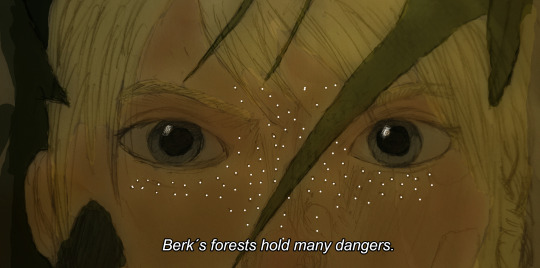



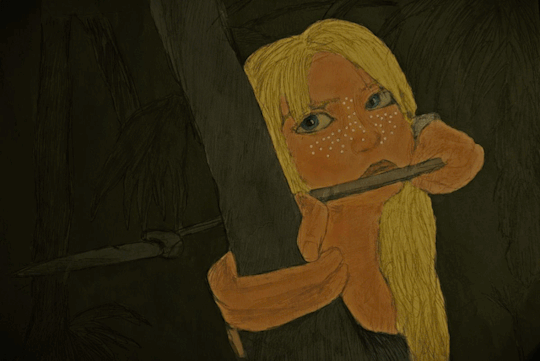
Momstrid protects
#httyd#httyd fanart#astrid hofferson#momstrid#avatar the way of water#avatar#started making this had a meltdown bon appetit#i love badass warrior momstrid#astrid is super protective of her loved ones and no one can change my mind#my art
87 notes
·
View notes
Text
noooooooo not more symptoms pls :(
#I thought my appetite was coming back but now I’m starting to feel gross and nauseous AFTER eating#why is this happening I’ve never experienced this before#I’m tempted to just ignore it because there’s no reason I should be having a new symptom#I haven’t changed anything about my diet or habits or whatever#idk I just. blegh#ramblings#personal#vent
13 notes
·
View notes
Text
Getting fresh produce on Instacart is always a gamble because half the time you’ll get vegetables that are already halfway spoiled but for real what is up with people thinking green beans and sugar snap peas are the same thing. Not even a replacement, I say to refund if it’s missing, and it still shows up as having gotten green beans when what I get is peas. Like c’mon work with me here goddamn
#it’s so frustrating I’ve been very weird about food and appetite lately so getting something that changes my meal plans#or tastes less good#it’s like I almost don’t even want to eat at all then#and I wanna be as nice as possible to my shoppers cuz gig jobs fucking suck but#after so many problems over the past year I’m convinced none of these people have ever seen let alone eaten a vegetable#p
16 notes
·
View notes
Text
I usually feed Odyssey in the evenings (just cus that's how my schedule usually shakes out) and when I drop his food in, he ALWAYS slams it full force like he has to kill it. Anyway I fed him later than usual a couple nights ago and when I dropped the food in he didn't hop off his perch to get it. And I was IMMEDIATELY like "oh no he's sick, he's dying, this is a Symptom, my BOY,," (bc illness symptoms in raptors are often rapid-onset)
But he finally (carefully) hopped to the ground from his perch and walked over to the food and I realized that it was just slightly too dark outside for him and he was uncomfortable flying. Lmao
#falconry books are all like 'watch for changes in appetite cus it can be the first sign of illness'#so i was momentarily FEARFUL#falconry#odyssey#tho i really do need to put some mosquito netting over his windows..... i wont be able to cover all the openings cus he also has a skylight#but at least getting the main part covered will help reduce the chance of mosquito-borne disease#jawjackin
41 notes
·
View notes
Text
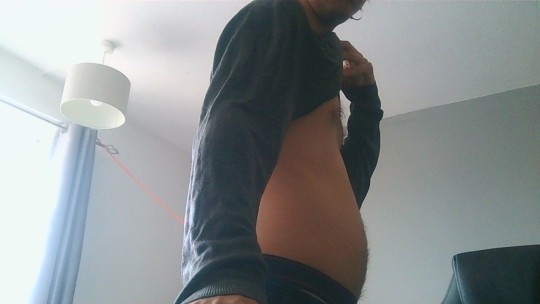
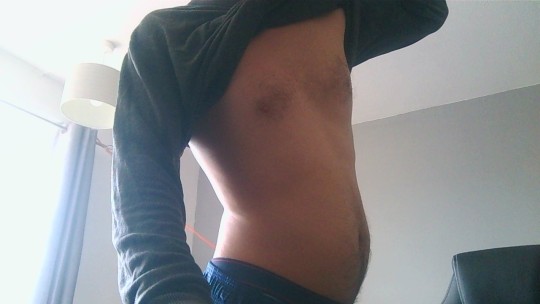
may 20th b0dych3x. check out that double chin and fat belly

june 4th . scale says a few pounds lost but its clearly lying

trying to tense lmfao. loser
#posting these will kill my appetite#obese alcoholic reporting 4 duty#got distracted halfway thru changing bedsheets#sick
20 notes
·
View notes
Text
Dude no this goes so fucking hard. I’m going to draw today
#I ALSO HAVE MY APPETITE BACK!!!! AFTER LIKE THREE YEARS!!!!!!!!!!!!!!#this is your sign to start looking into antidepressants girlies this shit will change your life#terrifiedofjudgement
6 notes
·
View notes
Text
8 months of testosterone will have you start saying shit like do my hands look more masculine
#THEY LOOK DIFFERENT I SWEAR#grasping for straws at this point bc I feel like I’ve had the first major changes#it’s like even tho I’m on gel they gave me such a high dose I had so much change so quick#like body hair voice drop etc….the first ones you look out for I feel. those started quicker than I expected#I think a lot of the noticeable changes now are the ones that take longer regardless??? idk#what I’m so grateful for is the face puffiness is gone OMG!!!!!#I had really bad water retention the first three months now I actually can look in the mirror#gotten used to the hunger and increased appetite#and in my experience more protein cravings#libido is the same as it was at the start too it just doesn’t feel as dire 👍#like I don’t feel as if I need to jack off 3x a day or else I’ll die. who said that#exposing myself tmi style to be real and true to the testosterone users and wanters reading
4 notes
·
View notes
Text
I’m getting overwhelmed again
#its the new years thing coming up jts stressing me out#and a lot of changes#changing meds#changing jobs#appetite has disappeared again#and im just anxious#idk#im freaked out idk#i just want something stable that dorsnt feel like everything im doing is wrong
38 notes
·
View notes